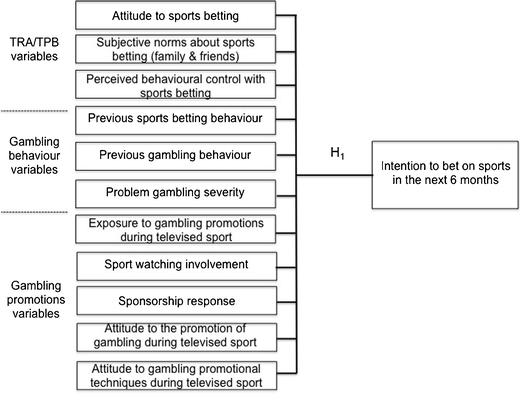Problem Gambling Sports Betting
Problem gambling habits often develop slowly, with the bettor unaware that anything is changing at all. Sports betting, being a form of gambling, can lead to sports bettors developing an unhealthy addiction to the game. Many states that have legalized the pastime have set aside small percentages of revenue to go toward the treatment of sports betting addiction because it is that prevalent among bettors. Over 4.5 million Americans struggle with gambling addiction. That represents roughly 1.5-3% of the total gambling population. It is especially important to be aware of the potential of problem gambling habits during the COVID-19 global pandemic, which has forced many out of work and into their homes.
Best Price Problem Gambling Sports Betting And Sports Gambling Teaser Problem Gam. The National Council on Problem Gambling said the situation with online betting needs to be addressed. “We’ve seen an increasingly wide expansion of online gambling during the pandemic, including.
Issues with gambling can destroy lives. Like any other addiction, it not only affects the person with the problem but all of the people in their lives from their friends and family to their coworkers. Problem gambling is a serious issue, and without proper resources, one that can consume bettors’ lives. To help combat problem gambling, we have provided our readers with a list of signs to look out for. This page will also offer tips to help avoid falling down the rabbit hole into addiction. Legal sports betting is meant to be a fun activity, not a harmful one. If you believe you have developed a problem, there are a number of ways to get help with your addiction. You can find various forms of accessible treatment at the bottom of this page.

How To Gamble Responsibly
Responsible gambling isn’t about making the right picks at the right times or hitting on a massive parlay for a once-in-a-lifetime payoff. These outcomes are part of why we play, but they don’t in themselves constitute responsible gaming or excuse poor sports wagering habits. If you want to maximize your fun and profit in the sports betting world, there are a few simple steps you can take to make sure that you and your hobby both stay in the black.
- Always keep track of the amount of money you spend on sports betting.
- Stick to a predetermined wagering limit for all of your sports betting sessions.
- Never bet on sports with more money than you can afford to lose.
- Never try to quickly recoup losses with a wager you did not plan to make.
- Do not bet on sports because you “need the money.”
- Always treat sports betting strictly as entertainment.
- Don’t bet on sports while inebriated or under the influence of drugs.
- Don’t use sports betting as an “escape” from unrelated problems in your personal, professional, or family life.
- Use only legitimate bookmaking services that have trustworthy financial track records.
- Always pay your required state and/or federal taxes on your sports betting winnings. See our Sports Betting and Taxes page for more info.
- Bet with your head, not your heart.
Are You A Problem Gambler?
Many times, it’s difficult to tell the difference between a simple run of bad luck (which is inevitable) and actual problem gambling. If you’re not sure that you have a problem but suspect that you may be dealing with gambling addiction, you can take a simple questionnaire to help you figure out the appropriate next steps.
Problem Gambling Sports Betting Odds
The following twenty (20) questions are adapted from the standard Gamblers Anonymous addiction questionnaire, which is considered the standard metric to briefly assess your gambling addiction risk. If you answer “Yes” to seven (7) or more questions, you may be a compulsive bettor and should consider making some changes to your approach or seeking help from a qualified party.
- Did you ever miss school or work due to sports betting?
- Has sports betting ever caused your private home life to become unhappy?
- Has sports betting ever negatively affected your personal or professional reputation?
- Have you ever felt remorseful after participating in sports betting?
- Have you ever bet on sports in order to pay bills or solve other unrelated financial problems?
- Has sports betting ever caused a decrease in your personal or professional ambitions?
- When you lose a sports bet, do you feel compelled to immediately place more bets to recoup your losses?
- When you win a sports bet, do you feel compelled to place more wagers in order to win even more money?
- Do you tend to bet on sports until all of your money is lost?
- Have you ever borrowed money to finance your sports betting habits?
- Did you ever sell anything in order to fund your sports betting habits?
- Are you reluctant to use money earmarked for sports betting for important personal or family expenditures?
- Has sports betting ever made you neglect the welfare of yourself or your family?
- Have you ever spent more time betting on sports than you had planned for?
- Have you ever bet on sports to escape worry, trouble, boredom, loneliness, grief or loss?
- Have you ever committed (or thought about committing) a crime to finance your sports betting?
- Has sports betting ever caused you to have difficulty sleeping?
- Do day-to-day conflicts, disappointments, or frustrations make you feel like you have to bet on sports?
- Do you ever celebrate good news by betting on sports?
- Have you ever considered self-harm or suicide due to sports betting?
- Do you find yourself needing to bet on something just because you need to get action on some sort of event?
Help Is Available!
Sports betting, like all gambling, can be a wholesome, entertaining, and profitable pastime. Unfortunately, a small percentage of gamblers will become addicted to the activity, and this can have very negative consequences, both for the gambler and those close to them. If you feel that you or someone you know might be addicted to sports betting or gambling, you can seek help by consulting with any of the following nationally recognized problem gambling agencies:
Help For Problem Gamblers

Asking for help is hard to do, but it is necessary if you feel that you have a gambling problem. There are a couple important resources that we wanted to put here, just in case you were unaware of them.

SAMHSA’s National Helpline – 1-800-662-HELP (4357)
National Problem Gambling Helpline – 1-800-522-4700
National Suicide Prevention Line – 1-800-273-8255.

Problem Gambling Sports Betting Gambling

Problem Gambling Sports Betting Sites
Please reach out if you need help with your gambling problems, or if you have any serious thoughts of self-harm due to gambling.